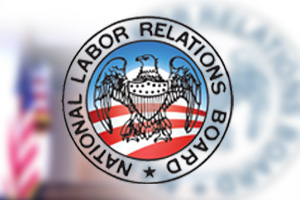Last Friday the National Labor Relations Board (NLRB) finally moved to revise the Obama-era election rule regulations that among other things shortened the time for union organizing elections from a minimum of 45 days down to an average of 23 days. It also constrained the ability of employers to file unfair labor practice objections to challenge the election. The formal regulatory change was published Monday, August 12, 2019 in the Federal Register.
This is an important step to formally change what has been called the “Ambush” or “Qu ickie” election rules passed over five years ago during the Obama-era NLRB. These rules made it difficult for employers to educate its employees about its position being unionized.
ickie” election rules passed over five years ago during the Obama-era NLRB. These rules made it difficult for employers to educate its employees about its position being unionized.
The three areas these proposed regulations address are:
- How the NLRB will handle blocking charges. How to respond and manage complaints that one side or the other improperly acted during the campaign with the result delaying the election due to unfair labor practices unduly impacting the election.
- The Voluntary Recognition Bar rule that presumes a union has a majority for a period of time subsequent to having been certified for representation. The Obama NLRB extended it beyond six months. The proposed rules could shorten that presumption to less than six months.
- Collective bargaining relationships involving employers in the construction industry. The proposed rule changes rule 9(a) of the National Labor Relations Act as it applied to the construction industry and its employees' rights to properly choose its representative.
The NLRB Chairman stated that it’s the NLRB’s responsibility to “protect the freedom of employees to choose, or refrain from choosing, a labor organization to represent them, including by ensuring fair and timely Board conducted secret ballot elections.”
The major concern these proposed rules address is the ability of either party to object and hold off an organizing election or a decertification election if allegations of coercionary or other unfair labor practice tactics could be shown to adversely affect the election outcome. In the past, both sides delayed elections for inordinate periods of time in order to sway the eventual organizing or decertification results in their favor.
The NLRB’s solution to this problem is to change the rule so that the election proceeds despite allegations of unfair labor practice(s). Charges would be reviewed after the election.
The NLRB is not done modifying rules addressing organizing with this publication. The NLRB is also looking at joint employer status and access to employer property during an organizing campaign. The NLRB rule-making approach, if completed, will prevent it from modifying its rulings by decision. This would cement the NLRB position against the political winds that impact them every election.
For more information on where the NLRB may be going with its regulations, join us at ASE’s Employment Law Conference tomorrow, August 15, 2019. Frank Mamat, former NLRB attorney, will be providing an update on federal labor law.
Sources: Law360 Breaking: NLRB Unveils 1st Part of Union Election Revamp by Vin Gurrieri (8/9/2019); Jackson Lewis Labor and Collective Bargaining blog Representation-Case Procedures, Students as Employees, Access to Private Property on NLRB Rulemaking Agenda By Linda R. Carlozzi, Howard M. Bloom and Philip B. Rosen on July 1, 2019